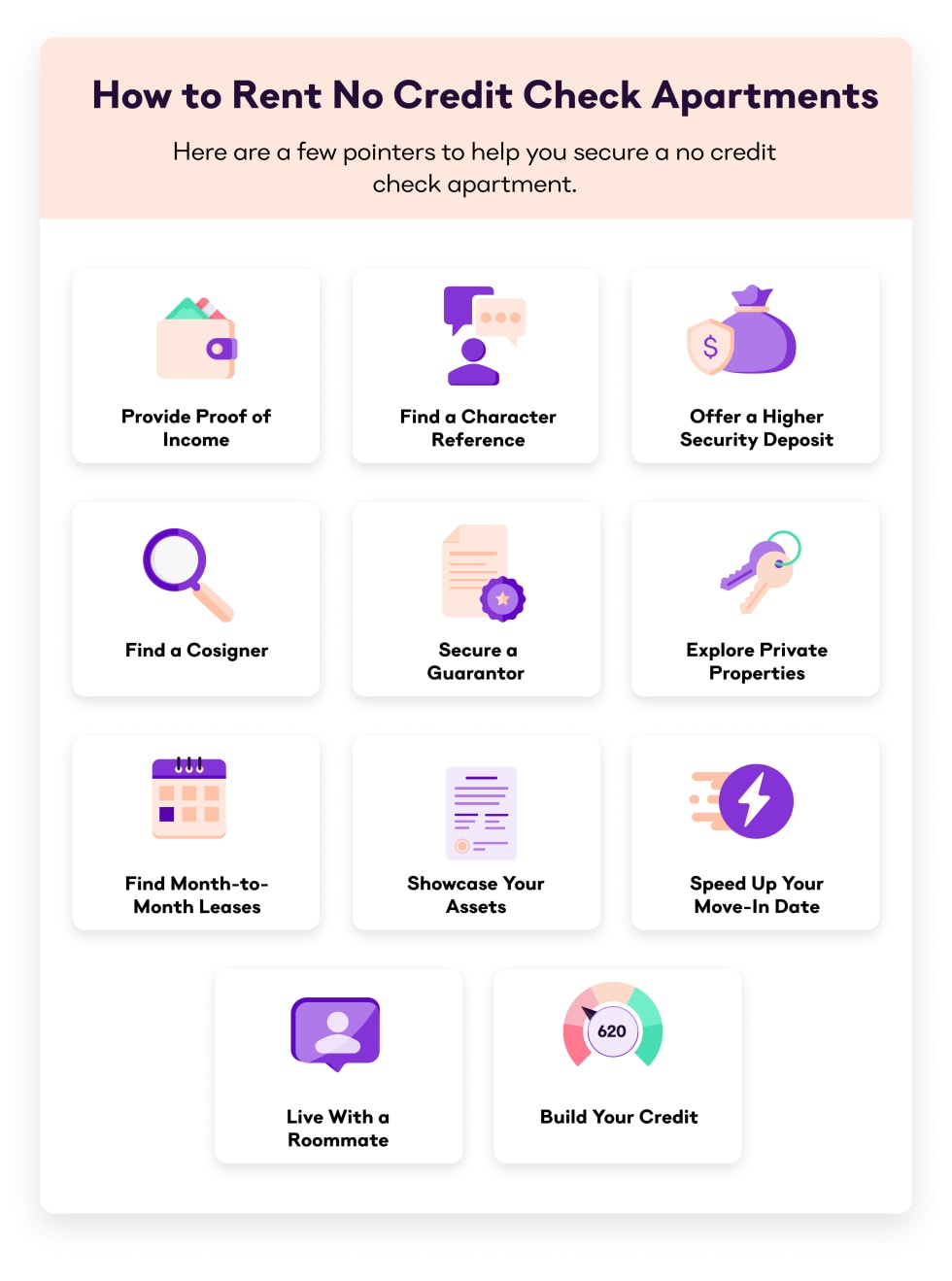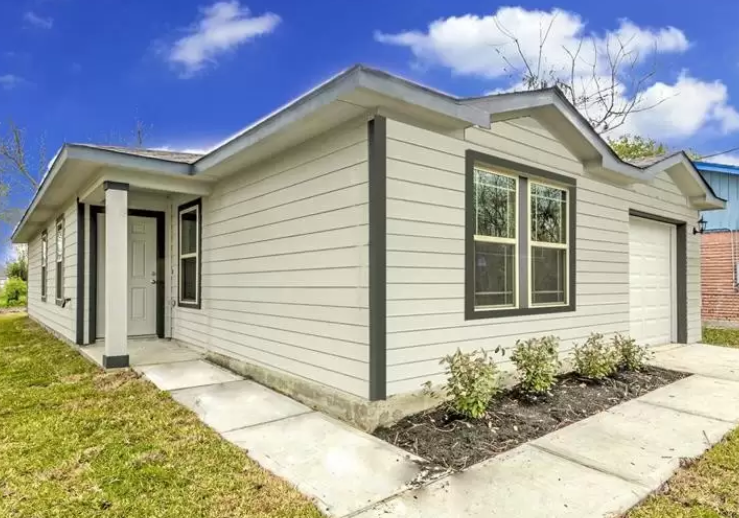For Rent With No Credit Check

The quest for housing has become a relentless struggle for many, particularly those with less-than-stellar credit histories. In a landscape dominated by stringent credit checks, a small but growing segment of landlords are offering rentals with no credit check, a beacon of hope for some and a potential minefield for others. But are these "no credit check" rentals a genuine solution to the housing crisis, or a risky proposition that could exacerbate existing inequalities?
At its core, the rise of "no credit check" rentals reflects a confluence of factors: a severe housing shortage, rising rental costs, and a growing number of individuals with damaged or limited credit. This article delves into the intricacies of this trend, examining the motivations of landlords, the experiences of tenants, and the potential implications for the broader housing market. We will explore the alternatives landlords use to assess risk and the potential pitfalls awaiting those who choose this path, aiming to provide a balanced perspective on a complex and increasingly relevant issue.
The Appeal of "No Credit Check" Rentals
For landlords, the primary incentive for offering rentals without credit checks is often simple: expanding their pool of potential tenants. In competitive markets, this can be a way to fill vacancies quickly and minimize losses. Some landlords may also be motivated by a desire to help those facing financial hardship, seeing it as a way to provide housing access to underserved populations.
Tenants, on the other hand, are drawn to these rentals out of necessity. A poor credit score, often stemming from past financial difficulties like job loss or medical debt, can be a major barrier to securing housing. "No credit check" rentals offer a chance to bypass this obstacle and find a place to live.
Many reports show that millions of Americans have a thin or non-existent credit file, making it difficult to qualify for traditional rentals, according to data from the Consumer Financial Protection Bureau (CFPB). For these individuals, "no credit check" options can be the only viable path to housing stability.
Assessing Risk Without Credit Scores
While landlords who forgo credit checks eliminate one hurdle, they must still find ways to assess a tenant's ability to pay rent and maintain the property. Several alternative methods are commonly used.
One common approach is to require a significantly larger security deposit, sometimes two or three months' rent. This provides the landlord with a financial cushion in case of late payments or property damage. Landlords might also ask for upfront payment for several months of rent.
Many landlords rely on employment verification and income verification. This involves directly contacting the tenant's employer to confirm their employment status and salary. Pay stubs and bank statements are also used to demonstrate consistent income.
Another strategy is to request references from previous landlords. These references can provide valuable insights into a tenant's rental history, including their payment habits and overall responsibility. Some landlords also conduct background checks, looking for criminal records or eviction history.
Some also consider allowing a co-signer. Co-signers provide an extra layer of security for the landlord.
Potential Pitfalls and Challenges
While "no credit check" rentals can be a lifeline for some, they also come with potential risks for both landlords and tenants. Landlords face the challenge of accurately assessing a tenant's reliability without the benefit of a credit report. This can increase the risk of late payments, property damage, or even eviction.
For tenants, the biggest drawback is often the higher cost associated with these rentals. Larger security deposits and increased rent can strain already tight budgets. There is also the risk of dealing with unscrupulous landlords who may exploit tenants' vulnerability.
Reports of "no credit check" rental scams are not uncommon. These scams often involve demanding large upfront fees or deposits for properties that don't exist or are not as advertised. Renters must be cautious and conduct thorough research before handing over any money.
Some landlords may also impose stricter rules or limitations on tenants in "no credit check" rentals. This can include restrictions on pets, guests, or even the use of certain amenities.
The Broader Housing Market Context
The rise of "no credit check" rentals is symptomatic of a larger problem: the growing affordability crisis in housing. As rental costs continue to outpace wage growth, more and more individuals are finding it difficult to meet traditional screening requirements.
The National Low Income Housing Coalition (NLIHC) consistently reports on the widening gap between wages and housing costs. Their research shows that in many states, a full-time worker earning minimum wage cannot afford a modest one-bedroom apartment.
This affordability crisis disproportionately affects low-income individuals, minorities, and those with past financial difficulties. The reliance on credit checks as a primary screening tool can perpetuate existing inequalities and limit access to housing for these vulnerable populations. The increasing competition for rental properties, especially those that do not check credit scores, can drive prices up on these rentals, further burdening those who can least afford it.
Looking Ahead: Policy and Solutions
Addressing the housing affordability crisis requires a multi-faceted approach. This includes increasing the supply of affordable housing, strengthening tenant protections, and reforming credit reporting practices.
Some cities and states are exploring policies to limit the use of credit checks in housing decisions. These policies aim to reduce discrimination and expand access to housing for those with limited or damaged credit. There is also the question of whether an algorithm that uses AI to determine whether a tenant is a good fit is a biased tool.
Another potential solution is to expand access to financial education and counseling. This can help individuals improve their credit scores and manage their finances more effectively. It is vital that potential tenants are well-informed and aware of the local resources available to them when renting a home.
Ultimately, "no credit check" rentals are a temporary solution to a systemic problem. While they can provide a much-needed option for some, they are not a substitute for comprehensive housing reform.
The future of housing access hinges on creating a more equitable and affordable system that does not rely solely on credit scores as a measure of worthiness. Innovative solutions, coupled with responsible lending practices, are essential to ensure that everyone has a safe and stable place to call home.


















